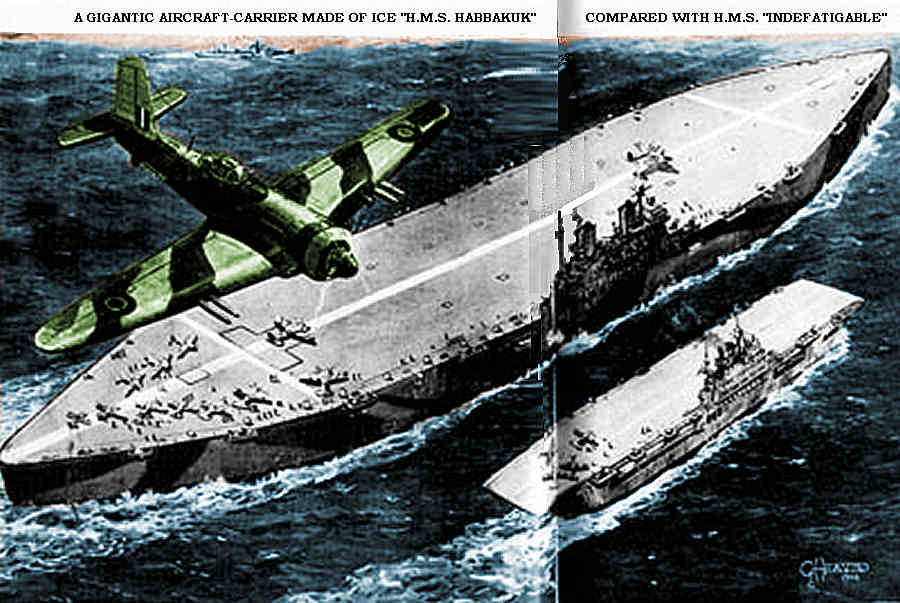

|
In 1942, Lord Mountbatten, the British military’s Chief of Combined Operations, convinced Winston Churchill, then naked and in his bathtub, of the the merits of a novel material known as Pykrete. The substance, a surprisingly slow-melting and effectively indestructible mixture of ice and wood pulp, was the creation of Geoffrey Pyke, a Hero of the Athanasius Kircher Society who the Times of London once declared “one of the most original if unrecognized figures of the present century.” Operation Habakkuk was born with the intent of creating a massive floating island 2,000 feet long, 300 feet wide, and 40 feet thick that would serve as a sort of glacial aircraft carrier for 200 Spitfires. As demonstrated in the above illustration, the Habbakuk would have been almost 25 times more massive than the largest ship afloat at the time. The problem, according to one source, is that the Habbakuk would have required all the wood chips in Canada to produce. And, of course, in the end the ship would eventually melt… As ever, our friends at Cabinet have already written
on the subject of Pykrete. Plus, details of a modern
experiment with the
substance, and a reprint of Geoffrey Pyke’s POW
travelogue from McSweeney’s.
And, “Pykrete:
the Myth that Wouldn’t Die.” War ship, ice blocks and Mennonite COs In the later months of 1942,
the British were in desperate need of
warships that could withstand attacks from German U-boats. Inventor
Geoffrey Pyke proposed a solution: a 2000 foot ice ship, weighing 1.8
million tons, with enough refrigeration equipment to repair any damage
that a German torpedo could inflict. Churchill expressed interest in
the idea, and as a result, plans were made to construct a small scale
version of the ship at Patricia Lake, Alberta, in what is now Jasper
National Park. The top secret affair was code named the “Habbakuk
project.” “For I am doing something in your own days that you would not
believe if you were told it.” (Habbakuk 1:5 Therefore the law is
slacked, and judgment doth never go forth: for the wicked doth compass
about the righteous; therefore wrong judgment proceedeth.)
|